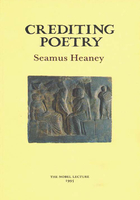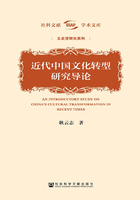INICIUS did not lie down that night. Some time after the departure of Petronius, when the groans of his flogged slaves could allay neither his rage nor his pain, he collected a crowd of other servants, and, though the night was far advanced,rushed forth at the head of these to look for Lygia. He visited the district of the Esquiline, then the Subura,Vicus Sceleratus, and all the adjoining alleys. Passing next around the Capitol, he went to the island over the bridge of Fabricius; after that he passed through a part of the Trans-Tiber. But that was a pursuit without object, for he himself had no hope of finding Lygia,and if he sought her it was mainly to fill out with something a terrible night. In fact he returned home about daybreak, when the carts and mules of dealers in vegetables began to appear in the city, and when bakers were opening their shops.
V
On returning he gave command to put away Gulo's corpse, which no one had ventured to touch. The slaves from whom Lygia had been taken he sent to rural prisons,—a punishment almost more dreadful than death. Throwing himself at last on a couch in the atrium, he began to think confusedly of how he was to find and seize Lygia
To resign her, to lose her, not to see her again,seemed to him impossible; and at this thought alone frenzy took hold of him. For the first time in life the imperious nature of the youthful soldier met resistance, met another unbending will, and he could not understand simply how any one could have the daring to thwart his wishes. Vinicius would have chosen to see the world and the city sink in ruins rather than fail of his purpose. The cup of delight had been snatched from before his lips almost; hence it seemed to him that something unheard of had happened, something crying to divine and human laws for vengeance.
But, first of all, he was unwilling and unable to be reconciled with fate, for never in life had he so desired anything as Lygia. It seemed to him that he could not exist without her. He could not tell himself what he was to do without her on the morrow, how he was to survive the days following. At moments he was transported by a rage against her, which approached madness. He wanted to have her, to beat her, to drag her by the hair to the cubiculum, and gloat over her; then, again, he was carried away by a terrible yearning for her voice, her form, her eyes, and he felt that he would be ready to lie at her feet. He called to her, gnawed his fingers, clasped his head with his hands. He strove with all his might to think calmly about searching for her,—and was unable. A thousand methods and means flew through his head, but one wilder than another. At last the thought flashed on him that no one else had intercepted her but Aulus, that in every case Aulus must know where she was hiding. And he sprang up to run to the house of Aulus.
If they will not yield her to him, if they have no fear of his threats, he will go to Caesar, accuse the old general of disobedience, and obtain a sentence of death against him; but before that, he will gain from them a confession of where Lygia is. If they give her,even willingly, he will be revenged. They received him, it is true, in their house and nursed him,—but that is nothing! With this one injustice they have freed him from every debt of gratitude. Here his vengeful and stubborn soul began to take pleasure at the despair of Pomponia Graecina, when the centurion would bring the death sentence to old Aulus. He was almost certain that he would get it. Petronius would assist him. Moreover, Caesar never denies anything to his intimates, the Augustians, unless personal dislike or desire enjoins a refusal.
Suddenly his heart almost died within him, under the influence of this terrible supposition—"But if Caesar himself has taken Lygia?"
All knew that Nero from tedium sought recreation in night attacks. Even Petronius took part in these amusements. Their main object was to seize women and toss each on a soldier's mantle till she fainted.Even Nero himself on occasions called these expeditions "pearl hunts," for it happened that in the depth of districts occupied by a numerous and needy population they caught a real pearl of youth and beauty sometimes. Then the "sagatio," as they termed the tossing, was changed into a genuine carrying away,and the pearl was sent either to the Palatine or to one of Caesar's numberless villas, or finally Caesar yielded it to one of his intimates. So might it happen also with Lygia. Caesar had seen her during the feast; and Vinicius doubted not for an instant that she must have seemed to him the most beautiful woman he had seen yet. How could it be otherwise? It is true that Lygia had been in Nero's own house on the Palatine, and he might have kept her openly. But, as Petronius said truly, Caesar had no courage in crime, and, with power to act openly, he chose to act always in secret. This time fear of Poppaea might incline him also to secrecy.It occurred now to the young soldier that Aulus would not have dared, perhaps, to carry off forcibly a girl given him, Vinicius, by Caesar. Besides, who would dare? Would that gigantic blue-eyed Lygian, who had the courage to enter the triclinium and carry her from the feast on his arm? But where could he hide with her; whither could he take her? No! a slave would not have ventured that far. Hence no one had done the deed except Caesar.
At this thought it grew dark in his eyes, and drops of sweat covered his forehead. In that case Lygia was lost to him forever. It was possible to wrest her from the hands of any one else, but not from the hands of Caesar. Now, with greater truth than ever, could he exclaim, "Vae misero mihi!" His imagination represented Lygia in Nero's arms, and, for the first time in life, he understood that there are thoughts which are simply beyond man's endurance. He knew then, for the first time, how he loved her. As his whole life flashes through the memory of a drowning man,so Lygia began to pass through his. He saw her, heard every word of hers,—saw her at the fountain, saw her at the house of Aulus, and at the feast; felt her near him, felt the odor of her hair, the warmth of her body,the delight of the kisses which at the feast he had pressed on her innocent lips. She seemed to him a hundred times sweeter, more beautiful, more desired than ever,—a hundred times more the only one, the one chosen from among all mortals and divinities.And when he thought that all this which had become so fixed in his heart, which had become his blood and life, might be possessed by Nero, a pain seized him,which was purely physical, and so piercing that he wanted to beat his head against the wall of the atrium,until he should break it. He felt that he might go mad;and he would have gone mad beyond doubt, had not vengeance remained to him. But as hitherto he had thought that he could not live unless he got Lygia, he thought now that he would not die till he had avenged her. This gave him a certain kind of comfort. "I will be thy Cassius Chaerea!" [The slayer of Caligula] said he to himself in thinking of Nero. After a while, seizing earth in his hands from the flower vases surrounding the impluvium, he made a dreadful vow to Erebus,Hecate, and his own household lares, that he would have vengeance.
And he received a sort of consolation. He had at least something to live for and something with which to fill his nights and days. Then, dropping his idea of visiting Aulus, he gave command to bear him to the Palatine. Along the way he concluded that if they would not admit him to Caesar, or if they should try to find weapons on his person, it would be a proof that Caesar had taken Lygia. He had no weapons with him.He had lost presence of mind in general; but as is usual with persons possessed by a single idea, he preserved it in that which concerned his revenge. He did not wish his desire of revenge to fall away prematurely.He wished above all to see Acte, for he expected to learn the truth from her. At moments the hope flashed on him that he might see Lygia also, and at that thought he began to tremble. For if Caesar had carried her away without knowledge of whom he was taking,he might return her that day. But after a while he cast aside this supposition. Had there been a wish to return her to him, she would have been sent yesterday. Acte was the only person who could explain everything,and there was need to see her before others.
Convinced of this, he commanded the slaves to hasten; and along the road he thought without order,now of Lygia, now of revenge. He had heard that Egyptian priests of the goddess Pasht could bring disease on whomever they wished, and he determined to learn the means of doing this. In the Orient they had told him, too, that Jews have certain invocations by which they cover their enemies' bodies with ulcers.He had a number of Jews among his domestic slaves;hence he promised himself to torture them on his return till they divulged the secret. He found most delight, however, in thinking of the short Roman sword which lets out a stream of blood such as had gushed from Caius Caligula and made ineffaceable stains on the columns of the portico. He was ready to exterminate all Rome; and had vengeful gods promised that all people should die except him and Lygia, he would have accepted the promise.
In front of the arch he regained presence of mind,and thought when he saw the pretorian guard, "If they make the least difficulty in admitting me, they will prove that Lygia is in the palace by the will of Caesar."But the chief centurion smiled at him in a friendly manner, then advanced a number of steps, and said,—"A greeting, noble tribune. If thou desire to give an obeisance to Caesar, thou hast found an unfortunate moment. I do not think that thou wilt be able to see him."
"What has happened?" inquired Vinicius.
"The infant Augusta fell ill yesterday on a sudden.Caesar and the august Poppaea are attending her,with physicians whom they have summoned from the whole city."
This was an important event. When that daughter was born to him, Caesar was simply wild from delight,and received her with extra humanum gaudium.Previously the senate had committed the womb of Poppaea to the gods with the utmost solemnity.A votive offering was made at Antium, where the delivery took place; splendid games were celebrated,and besides a temple was erected to the two Fortunes.Nero, unable to be moderate in anything, loved the infant beyond measure; to Poppaea the child was dear also, even for this, that it strengthened her position and made her influence irresistible
The fate of the whole empire might depend on the health and life of the infant Augusta; but Vinicius was so occupied with himself, his own case and his love, that without paying attention to the news of the centurion he answered, "I only wish to see Acte." And he passed in.
But Acte was occupied also near the child, and he had to wait a long time to see her. She came only about midday, with a face pale and wearied, which grew paler still at sight of Vinicius.
"Acte!" cried Vinicius, seizing her hand and drawing her to the middle of the atrium, "where is Lygia?"
"I wanted to ask thee touching that," answered she,looking him in the eyes with reproach.
But though he had promised himself to inquire of her calmly, he pressed his head with his hands again,and said, with a face distorted by pain and anger,—"She is gone. She was taken from me on the way!"
After a while, however, he recovered, and thrusting his face up to Acte's, said through his set teeth,—"Acte! If life be dear to thee, if thou wish not to cause misfortunes which thou are unable even to imagine,answer me truly. Did Caesar take her?"
"Caesar did not leave the palace yesterday."
"By the shade of thy mother, by all the gods, is she not in the palace?"
"By the shade of my mother, Marcus, she is not in the palace, and Caesar did not intercept her. The infant Augusta is ill since yesterday, and Nero has not left her cradle."
Vinicius drew breath. That which had seemed the most terrible ceased to threaten him.
"Ah, then," said he, sitting on the bench and clinching his fists, "Aulus intercepted her, and in that case woe to him!"
"Aulus Plautius was here this morning. He could not see me, for I was occupied with the child; but he inquired of Epaphroditus, and others of Caesar's servants, touching Lygia, and told them that he would come again to see me."
"He wished to turn suspicion from himself. If he knew not what happened, he would have come to seek Lygia in my house."
"He left a few words on a tablet, from which thou wilt see that, knowing Lygia to have been taken from his house by Caesar, at thy request and that of Petronius, he expected that she would be sent to thee,and this morning early he was at thy house, where they told him what had happened."
When she had said this, she went to the cubiculum and returned soon with the tablet which Aulus had left.Vinicius read the tablet, and was silent; Acte seemed to read the thoughts on his gloomy face, for she said after a while,—"No, Marcus. That has happened which Lygia herself wished."
"It was known to thee that she wished to flee!" burst out Vinicius.
"I knew that she would not become thy concubine."And she looked at him with her misty eyes almost sternly.
"And thou,—what hast thou been all thy life?"
"I was a slave, first of all.
But Vinicius did not cease to be enraged. Caesar had given him Lygia; hence he had no need to inquire what she had been before. He would find her, even under the earth, and he would do what he liked with her. He would indeed! She should be his concubine. He would give command to flog her as often as he pleased. If she grew distasteful to him, he would give her to the lowest of his slaves, or he would command her to turn a handmill on his lands in Africa. He would seek her out now, and find her only to bend her, to trample on her, and conquer her.
And, growing more and more excited, he lost every sense of measure, to the degree that even Acte saw that he was promising more than he could execute; that he was talking because of pain and anger. She might have had even compassion on him, but his extravagance exhausted her patience, and at last she inquired why he had come to her.
Vinicius did not find an answer immediately. He had come to her because he wished to come, because he judged that she would give him information; but really he had come to Caesar, and, not being able to see him, he came to her. Lygia, by fleeing, opposed the
will of Caesar; hence he would implore him to give an order to search for her throughout the city and the
empire, even if it came to using for that purpose all the legions, and to ransacking in turn every house within
Roman dominion. Petronius would support his prayer, and the search would begin from that day.
"Have a care," answered Acte, "lest thou lose her forever the moment she is found, at command of Caesar."
Vinicius wrinkled his brows. "What does that mean?" inquired he.
"Listen to me, Marcus. Yesterday Lygia and I were in the gardens here, and we met Poppaea, with the infant Augusta, borne by an African woman, Lilith.
In the evening the child fell ill, and Lilith insists that she was bewitched; that that foreign woman whom
they met in the garden bewitched her. Should the child recover, they will forget this, but in the opposite case
Poppaea will be the first to accuse Lygia of witchcraft, and wherever she is found there will be no rescue for
her."
A moment of silence followed; then Vinicius said,—"But perhaps she did bewitch her, and has bewitched me."
"Lilith repeats that the child began to cry the moment she carried her past us. And really the child did begin to cry. It is certain that she was sick when
they took her out of the garden. Marcus, seek for Lygia whenever it may please thee, but till the infant
Augusta recovers, speak not of her to Caesar, or thou wilt bring on her Poppaea's vengeance. Her eyes have
wept enough because of thee already, and may all the gods guard her poor head."
"Dost thou love her, Acte?" inquired Vinicius,gloomily.
"Yes, I love her." And tears glittered in the eyes of the freedwoman.
"Thou lovest her because she has not repaid thee with hatred, as she has me."
Acte looked at him for a time as if hesitating, or as if wishing to learn if he spoke sincerely; then she said,—"O blind and passionate man—she loved thee."
Vinicius sprang up under the influence of those words, as if possessed. "It is not true."
She hated him. How could Acte know? Would Lygia make a confession to her after one day's acquaintance?What love is that which prefers wandering, the disgrace of poverty, the uncertainty of to-morrow, or a shameful death even, to a wreath-bedecked house,in which a lover is waiting with a feast? It is better for him not to hear such things, for he is ready to go mad. He would not have given that girl for all Caesar's treasures, and she fled. What kind of love is that which dreads delight and gives pain? Who can understand it? Who can fathom it? Were it not for the hope that he should find her, he would sink a sword in himself. Love surrenders; it does not take away. There were moments at the house of Aulus when he himself believed in near happiness, but now he knows that she hated him, that she hates him, and will die with hatred in her heart.
But Acte, usually mild and timid, burst forth in her turn with indignation. How had he tried to win Lygia? Instead of bowing before Aulus and Pomponia to get her, he took the child away from her parents by stratagem. He wanted to make, not a wife, but a concubine of her, the foster daughter of an honorable house, and the daughter of a king. He had her brought to this abode of crime and infamy; he defiled her innocent eyes with the sight of a shameful feast; he acted with her as with a wanton. Had he forgotten the house of Aulus and Pomponia Graecina, who had reared Lygia? Had he not sense enough to understand that there are women different from Nigidia or Calvia Crispinilla or Poppaea, and from all those whom he meets in Caesar's house? Did he not understand at once on seeing Lygia that she is an honest maiden,who prefers death to infamy? Whence does he know what kind of gods she worships, and whether they are not purer and better than the wanton Venus, or than Isis, worshipped by the profligate women of Rome?No! Lygia had made no confession to her, but she had said that she looked for rescue to him, to Vinicius: she had hoped that he would obtain for her permission from Caesar to return home, that he would restore her to Pomponia. And while speaking of this, Lygia blushed like a maiden who loves and trusts. Lygia's heart beat for him; but he, Vinicius, had terrified and offended her; had made her indignant; let him seek her now with the aid of Caesar's soldiers, but let him know that should Poppaea's child die, suspicion will fall on Lygia, whose destruction will then be inevitable.
Emotion began to force its way through the anger and pain of Vinicius. The information that he was loved by Lygia shook him to the depth of his soul.He remembered her in Aulus's garden, when she was listening to his words with blushes on her face and her eyes full of light. It seemed to him then that she had begun to love him; and all at once, at that thought, a feeling of certain happiness embraced him, a hundred times greater than that which he desired. He thought that he might have won her gradually, and besides as one loving him. She would have wreathed his door,rubbed it with wolf's fat, and then sat as his wife by his hearth on the sheepskin. He would have heard from her mouth the sacramental: "Where thou art,Caius, there am I, Caia." And she would have been his forever. Why did he not act thus? True, he had been ready so to act. But now she is gone, and it may be impossible to find her; and should he find her,perhaps he will cause her death, and should he not cause her death, neither she nor Aulus nor Pomponia Graecina will favor him. Here anger raised the hair on his head again; but his anger turned now, not against the house of Aulus, or Lygia, but against Petronius.Petronius was to blame for everything. Had it not been for him Lygia would not have been forced to wander;she would be his betrothed, and no danger would be hanging over her dear head. But now all is past, and it is too late to correct the evil which will not yield to correction.
"Too late!" And it seemed to him that a gulf had opened before his feet. He did not know what to begin, how to proceed, whither to betake himself.Acte repeated as an echo the words, "Too late," which from another's mouth sounded like a death sentence.He understood one thing, however, that he must find Lygia, or something evil would happen to him.
And wrapping himself mechanically in his toga,he was about to depart without taking farewell even of Acte, when suddenly the curtain separating the entrance from the atrium was pushed aside, and he saw before him the pensive figure of Pomponia Graecina
Evidently she too had heard of the disappearance of Lygia, and, judging that she could see Acte more easily than Aulus, had come for news to her.
But, seeing Vinicius, she turned her pale, delicate face to him, and said, after a pause,—"May God forgive thee the wrong, Marcus, which thou hast done to us and to Lygia."
He stood with drooping head, with a feeling of misfortune and guilt, not understanding what God was to forgive him or could forgive him. Pomponia had no cause to mention forgiveness; she ought to have spoken of revenge.
At last he went out with a head devoid of counsel,full of grievous thoughts, immense care, and amazement.
In the court and under the gallery were crowds of anxious people. Among slaves of the palace were knights and senators who had come to inquire about the health of the infant, and at the same time to show themselves in the palace, and exhibit a proof of their anxiety, even in presence of Nero's slaves. News of the illness of the "divine" had spread quickly it was evident, for new forms appeared in the gateway every moment, and through the opening of the arcade whole crowds were visible. Some of the newly arrived,seeing that Vinicius was coming from the palace,attacked him for news; but he hurried on without answering their questions, till Petronius, who had come for news too, almost struck his breast and stopped him.
Beyond doubt Vinicius would have become enraged at sight of Petronius, and let himself do some lawless act in Caesar's palace, had it not been that when he had left Acte he was so crushed, so weighed down and exhausted, that for the moment even his innate irascibility had left him. He pushed Petronius aside and wished to pass; but the other detained him, by force almost.
"How is the divine infant?" asked he.
But this constraint angered Vinicius a second time,and roused his indignation in an instant.
"May Hades swallow her and all this house!" said he, gritting his teeth.
"Silence, hapless man!" said Petronius, and looking around he added hurriedly,—"If thou wish to know something of Lygia, come with me; I will tell nothing here! Come with me; I will tell my thoughts in the litter."
And putting his arm around the young tribune, he conducted him from the palace as quickly as possible.That was his main concern, for he had no news whatever; but being a man of resources, and having, in spite of his indignation of yesterday, much sympathy for Vinicius, and finally feeling responsible for all that had happened, he had undertaken something already, and when they entered the litter he said,—"I have commanded my slaves to watch at every gate. I gave them an accurate description of the girl, and that giant who bore her from the feast at Caesar's,—for he is the man, beyond doubt, who intercepted her. Listen to me: Perhaps Aulus and Pomponia wish to secrete her in some estate of theirs; in that case we shall learn the direction in which they took her. If my slaves do not see her at some gate, we shall know that she is in the city yet, and shall begin this very day to search in Rome for her."
"Aulus does not know where she is," answered Vinicius.
"Art thou sure of that?"
"I saw Pomponia. She too is looking for her."
"She could not leave the city yesterday, for the gates are closed at night. Two of my people are watching at each gate. One is to follow Lygia and the giant,the other to return at once and inform me. If she is in the city, we shall find her, for that Lygian is easily recognized, even by his stature and his shoulders.Thou art lucky that it was not Caesar who took her,and I can assure thee that he did not, for there are no secrets from me on the Palatine."
But Vinicius burst forth in sorrow still more than in anger, and in a voice broken by emotion told Petronius what he had heard from Acte, and what new dangers were threatening Lygia,—dangers so dreadful that because of them there would be need to hide her from Poppaea most carefully, in case they discovered her.Then he reproached Petronius bitterly for his counsel.Had it not been for him, everything would have gone differently. Lygia would have been at the house of Aulus, and he, Vinicius, might have seen her every day, and he would have been happier at that moment than Caesar. And carried away as he went on with his narrative, he yielded more and more to emotion, till at last tears of sorrow and rage began to fall from his eyes.
Petronius, who had not even thought that the young man could love and desire to such a degree, when he saw the tears of despair said to himself, with a certain astonishment,—"O mighty Lady of Cyprus, thou alone art ruler of gods and men!"















